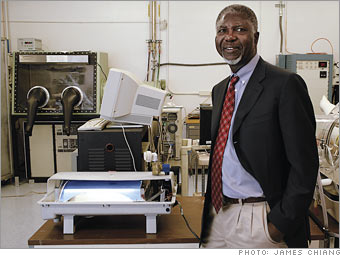The background: More than a billion people lack access to drinkable water. Nearly 5,000 children die each day from waterborne diseases like diarrhea, cholera, and typhoid.
The solution: WaterHealth International, based in Lake Forest, Calif., sells miniature water-treatment plants to the developing world. WaterHealth locates a source - a nearby river or well - and builds a delivery system to get the water to its garage-size WaterHealth Centre. There, water is piped through filters and a 15-pound ultraviolet disinfection device that removes all but .01 percent of bacteria and viruses.
The system has no moving parts, and the UV lamp needs just 60 watts of power, which can be supplied by a car battery. Installation costs a 6,000-person village about $10 per person.
The payoff: WaterHealth operates more than 500 systems in Asia, Africa, and Central America, delivering water to an estimated 500,000 people. The privately held company won't disclose its revenue, but its typical installation brings in as much as $50,000. WaterHealth expects to turn a profit next year.
The opportunity: WaterHealth estimates that there are about 2 billion people without access to clean water or whose water supplies could be improved with filtering.

